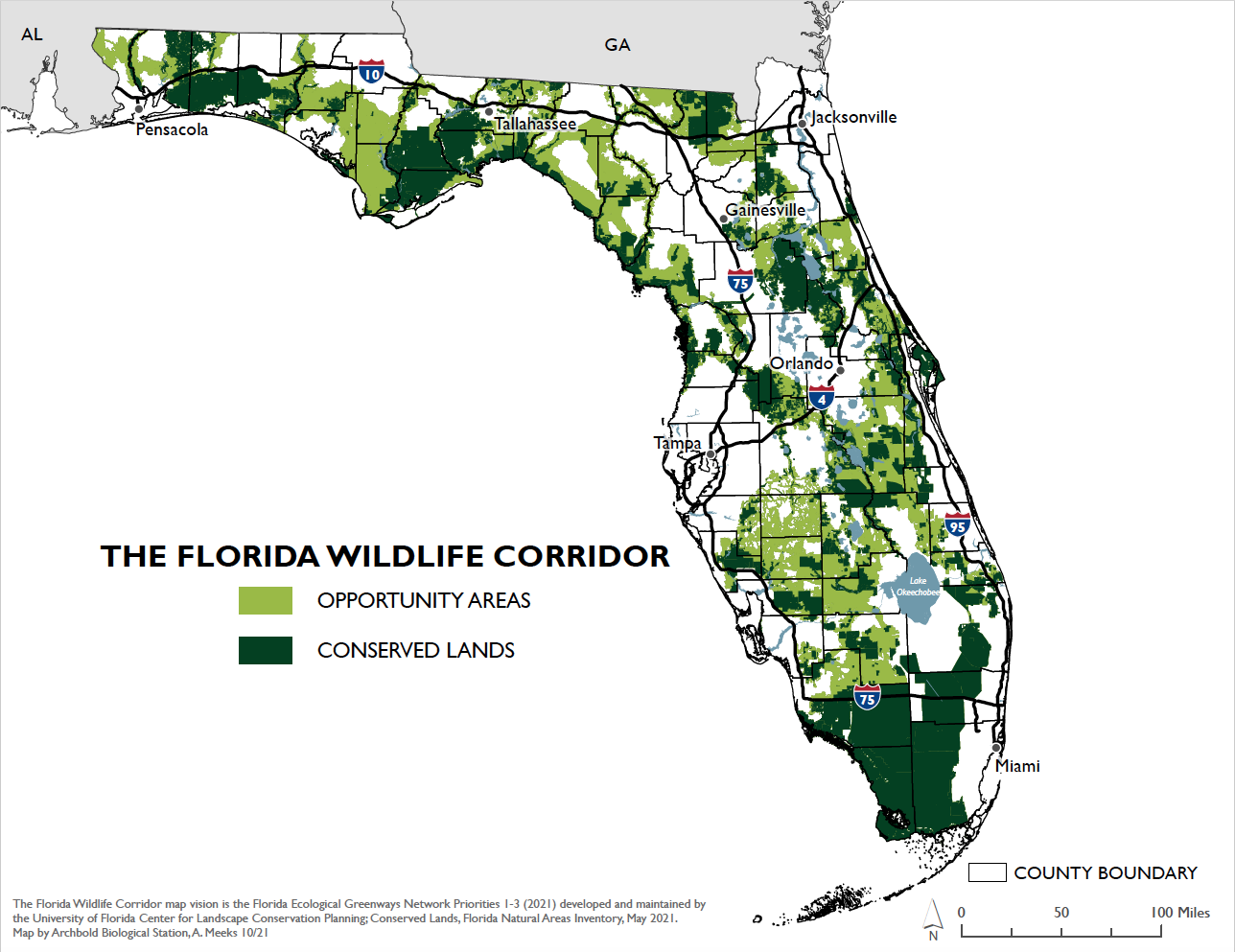Conservation
Learn how to be a naturalist and help keep Florida wild
“To protect an animal, you have got to know where it is – not just once in a while, but all the time.” Archie Carr
Life as a Naturalist
Spend time outside observing the natural world.
·Provide shelter, nesting habitat, fruiting trees, and water for animals in your garden.
Preserve biodiversity in your yard by adding native plants. Research shows that yards with native plants can attract more than twice as many animals and types of animals than traditionally landscaped yards.
·If possible, keep dead trees, fallen branches, logs, and leaf piles around your garden to provide hiding places for animals and to attract insects, an important food source for wildlife.
Reduce or eliminate pesticides and lawn chemicals as they reduce insect and plant diversity, can be fatal to some animals, and pollute waterways.
Plant a native garden at a park or schoolyard.
Participate in a beach or waterways cleanup.
Become a citizen scientist and help monitor species populations.
Buy sustainable foods, products, and services.
Become a Junior Ranger at a U.S. National Park.
Study the natural sciences and become an environmental leader.
Join the conservation efforts of different environmental groups such as The Everglades Foundation, Florida Wildlife Corridor Foundation, Friends of the Everglades, Miami Waterkeeper, and The Nature Conservancy.
Write letters to lawmakers asking them to conserve, restore, and connect natural habitats.
“This (wildlife corridor) can be a real model of nature and people working together.” Carlton Ward Jr.
The Florida Wildlife Corridor Act was signed into law in 2022 as a conservation measure to protect connected pieces of natural and agricultural lands for migrating animals, especially far-ranging species like the Florida panther and black bear. By adding new opportunity areas to the wild regions that have already been conserved, Florida is ensuring that future generations can live in harmony with wildlife and their natural world.



